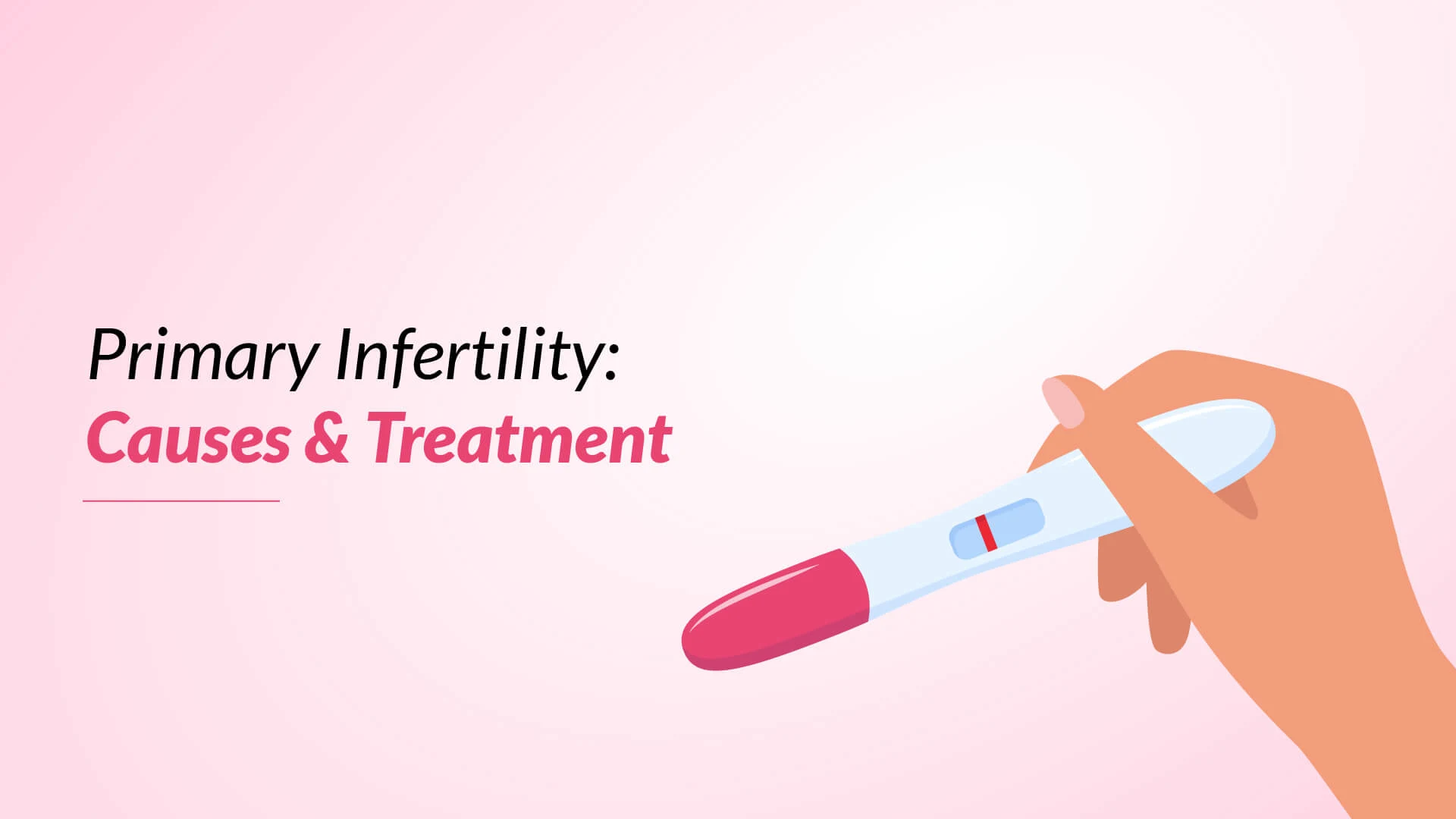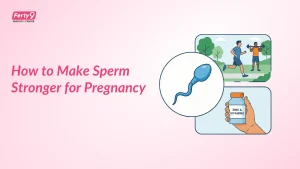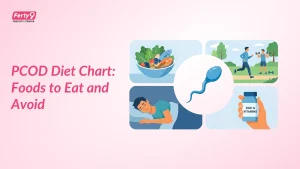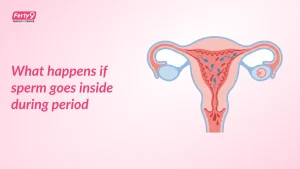Infertility is a heartbreaking journey for many couples, and primary infertility can be particularly challenging. It’s a condition where a couple is unable to conceive a child after one year of regular, unprotected sexual intercourse without any previous pregnancies. As daunting as it may seem, understanding the primary causes of infertility in males and females and available primary infertility treatment options can empower couples to navigate this complex path with hope and determination.
What Is Primary Infertility?
It refers to the couple’s inability to conceive their first child after a year of trying. It’s an intricate issue that can stem from various factors affecting either or both partners. Unlike secondary infertility, where a couple has previously conceived but is struggling to have another child, primary infertility is often more challenging to diagnose and treat.
Causes of Primary Infertility in Female
Several factors can contribute to primary female infertility, ranging from hormonal imbalances to structural abnormalities and lifestyle choices.
Hormonal Disorders
Hormonal disorders, most common among them, are polycystic ovary syndrome (PCOS), thyroid disorders, and hyperprolactinemia, which can disrupt the normal ovulation cycle, making it difficult for a woman to conceive.
Structural Abnormalities
These abnormalities in the reproductive system (blocked fallopian tubes, uterine fibroids, or endometriosis) can prevent the egg from travelling to the uterus or implanting successfully.
Ovulatory Issues
Ovulatory disorders, such as anovulation (lack of ovulation causing primary anovulatory infertility) or irregular ovulation, can make it challenging for a woman to conceive naturally.
Age-related Factors
As women age, their fertility declines due to decreased quantity and egg quality. This can make it more difficult to conceive, especially after age 35.
Lifestyle and Environmental Factors
Smoking, excessive alcohol consumption, being overweight or underweight, and environmental toxins can negatively impact fertility.
Genetic and Autoimmune Conditions
Genetic conditions, such as chromosomal abnormalities or autoimmune disorders like lupus, can contribute to primary infertility in women.
Causes of Primary Infertility in Males
While infertility is often associated with women, male-factor infertility plays a significant role in primary infertility cases.
Sperm Production Issues
Problems with sperm production, such as low sperm count (oligospermia), subpar sperm motility (asthenospermia), or abnormal sperm shape (teratospermia), can make it difficult for sperm to fertilise an egg.
Ejaculation Disorders
Retrograde ejaculation, premature ejaculation or other ejaculation disorders can impair the delivery of sperm during sexual intercourse.
Hormonal Imbalances
Low testosterone levels or elevated levels of prolactin can affect sperm production and quality.
Structural Abnormalities
Structural abnormalities in the male reproductive system, such as varicoceles (enlarged veins in the scrotum), blockages in the vas deferens, or congenital abnormalities, can impede sperm transport or ejaculation.
Genetic Factors
Chromosomal abnormalities, or gene mutations, can contribute to male infertility.
Infections and Inflammatory Conditions
Sexually transmitted infections (STIs) or inflammatory conditions like prostatitis can impact sperm production and quality.
Diagnosis of Primary Infertility
Diagnosing the underlying cause of primary infertility is crucial for determining the appropriate treatment plan. The process typically involves:
Medical History and Physical Examination:
- A detailed medical history of both partners, including lifestyle factors, medications, and previous illnesses or surgeries.
- Physical examinations to evaluate overall health and identify potential structural abnormalities.
Ovulation Monitoring:
- For women, ovulation monitoring may be performed through basal body temperature tracking, ovulation predictor kits, or ultrasound monitoring.
Semen Analysis:
- For men, a semen analysis is conducted to evaluate sperm count, motility, and morphology.
Hormonal Testing:
- Blood investigations may be prescribed to check hormone levels in both partners, such as follicle-stimulating hormone (FSH), luteinising hormone (LH), and testosterone.
Imaging Tests:
- Imaging tests like ultrasound, hysterosalpingogram (HSG), or laparoscopy can assess the reproductive organs and identify any structural abnormalities.
Genetic Testing:
- This testing may be recommended to identify potential genetic causes of infertility.
Treatment Options for Primary Infertility
The treatment approach for primary infertility depends on the underlying cause and the couple’s preferences. Several options are available, ranging from lifestyle modifications to assisted reproductive technologies.
Assisted Reproductive Technologies (ART)
- Intracytoplasmic Sperm Injection (ICSI): In this procedure, a single sperm is directly administered into an egg during IVF, which can be beneficial for cases of male factor infertility.
- Intrauterine Insemination (IUI): This involves placing prepared sperm directly into the woman’s uterus around the time of ovulation, increasing the chances of fertilisation.
- In Vitro Fertilisation (IVF): This process involves retrieving eggs from the woman’s ovaries, fertilising the retrieved eggs with sperm in vitro (in a laboratory) & transferring the resulting embryo(s) into the uterus.
Fertility Medications
- Clomiphene Citrate: This medication can stimulate ovulation in women with ovulatory disorders.
- Gonadotropins: These injectable hormones can stimulate the ovaries to produce multiple eggs, increasing the chances of conception.
Surgery
- Tubal Surgery: For females with blocked or damaged fallopian tubes, surgery may be performed to repair or unblock the tubes.
- Varicocele Repair: Surgery may be recommended for men with varicoceles (enlarged veins in the scrotum) to improve sperm quality and production.
Donation of eggs or sperm
In cases where a couple’s infertility cannot be treated with other methods, the use of donated eggs or sperm may be an option.
Timely Medical Consultation
Early consultation with a fertility specialist is decisive, as some treatments may be more effective if initiated earlier in the fertility journey.
Lifestyle Changes
Healthy lifestyle measures (including but not limited to a balanced diet, regular exercise & managing stress) can improve overall fertility for both partners.
Counselling and support
Infertility can also be an emotional setback for couples. Seeking counselling and support from professionals or support groups can help you navigate the challenges and make informed decisions.
Find Hope and Solutions for Female Infertility and Male Infertility — Explore Our Comprehensive Services
IVF Treatment
IUI Treatment
ICSI Treatment
PICSI Treatment
Fertility Preservation Service
Blastocyst Culture & Transfer Treatment
Genetic Screening & Testing
Conclusion
Primary infertility is a complex and emotional journey, but with the right support and treatment options, many couples can overcome this challenge. By understanding the potential causes & seeking timely medical assistance, couples can increase their chances of achieving their dream of starting a family. Remember, infertility is not a personal failure, and taking help is a courageous step towards finding a solution.





























